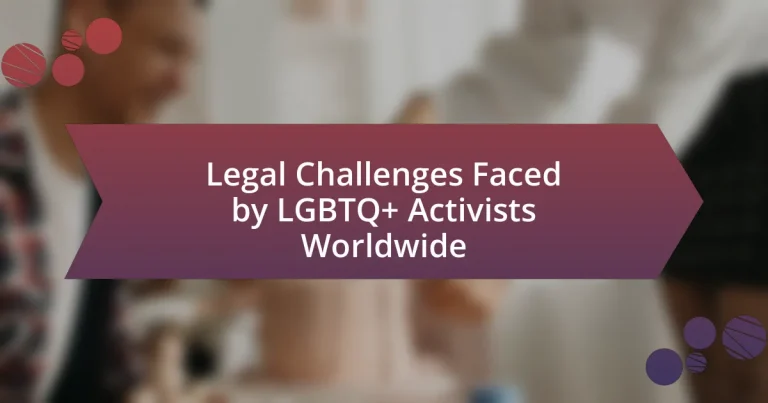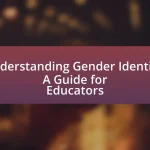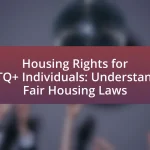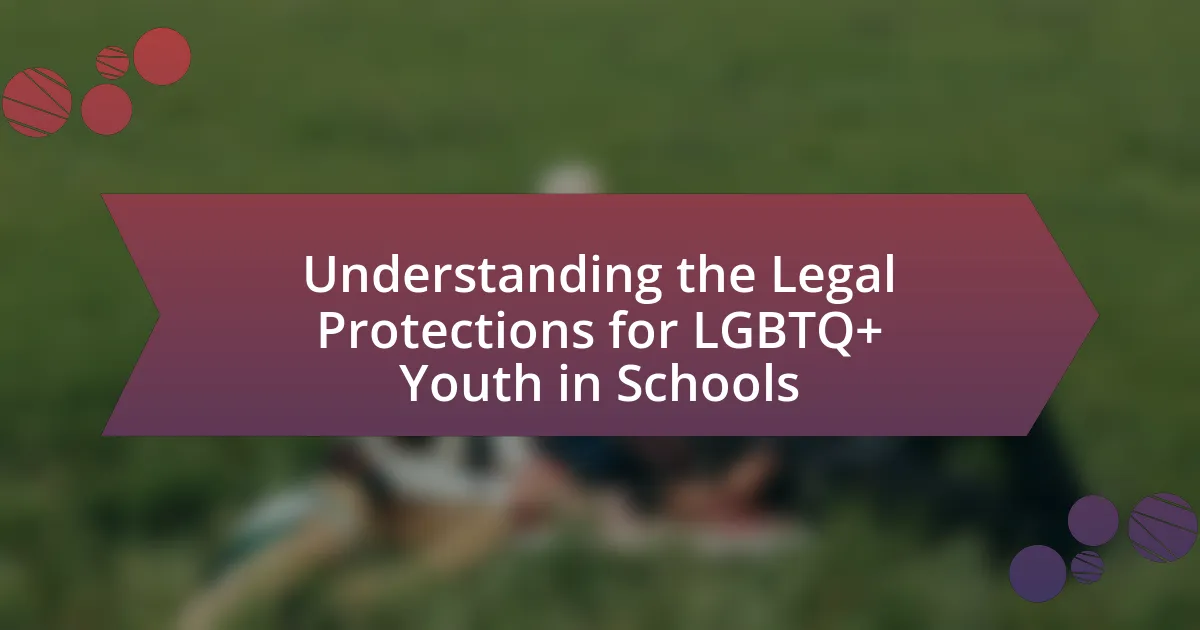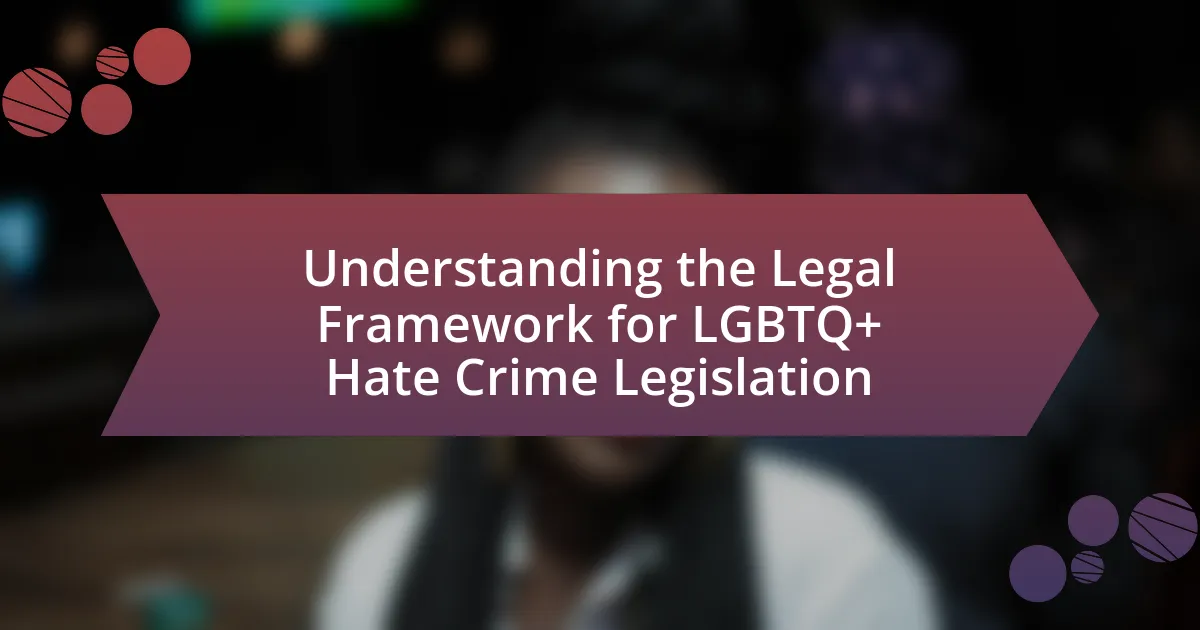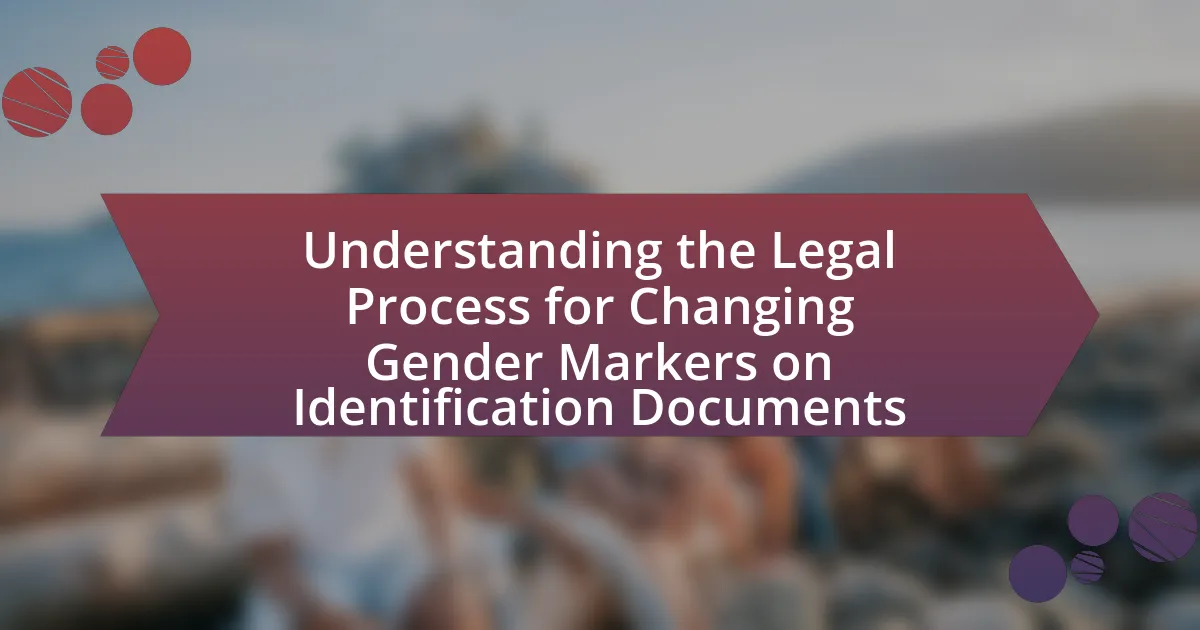LGBTQ+ activists worldwide encounter significant legal challenges that hinder their efforts for equality and rights. These challenges include the criminalization of same-sex relationships in over 70 countries, a lack of anti-discrimination laws, and restrictions on freedom of expression and assembly. The article examines how legal frameworks impact LGBTQ+ activism globally, highlighting the disparities in legal protections across regions and the specific legal issues activists face. It also discusses the importance of understanding these legal challenges for effective advocacy, the role of international law, and strategies that activists can employ to navigate and overcome these barriers.

What are the Legal Challenges Faced by LGBTQ+ Activists Worldwide?
LGBTQ+ activists worldwide face significant legal challenges, including criminalization of same-sex relationships, lack of anti-discrimination laws, and restrictions on freedom of expression and assembly. In over 70 countries, same-sex relationships are criminalized, leading to arrests and persecution of LGBTQ+ individuals. Additionally, many nations lack comprehensive legal protections against discrimination based on sexual orientation or gender identity, leaving activists vulnerable to legal repercussions. Furthermore, laws that restrict public gatherings and protests often disproportionately affect LGBTQ+ activism, hindering their ability to advocate for rights and visibility. These legal barriers contribute to a hostile environment for LGBTQ+ communities, impacting their safety and ability to organize effectively.
How do legal frameworks impact LGBTQ+ activism globally?
Legal frameworks significantly impact LGBTQ+ activism globally by either enabling or restricting the rights and freedoms of LGBTQ+ individuals. In countries with supportive legal frameworks, such as those recognizing same-sex marriage and anti-discrimination laws, LGBTQ+ activism tends to flourish, allowing for greater visibility, community organization, and advocacy efforts. For instance, in nations like Canada and the Netherlands, legal protections have led to increased public support and participation in LGBTQ+ events, such as Pride parades.
Conversely, in regions where legal frameworks are hostile, such as in many parts of Africa and the Middle East, LGBTQ+ activists face severe challenges, including criminalization, violence, and social stigma. In countries like Uganda and Nigeria, laws against homosexuality have led to increased persecution of LGBTQ+ individuals and activists, stifling their ability to organize and advocate for their rights. The Global Acceptance Index indicates that legal recognition correlates with societal acceptance, demonstrating that legal frameworks play a crucial role in shaping the landscape of LGBTQ+ activism worldwide.
What are the key legal barriers to LGBTQ+ rights in different countries?
Key legal barriers to LGBTQ+ rights in different countries include criminalization of same-sex relationships, lack of anti-discrimination laws, and restrictions on freedom of expression and assembly. For instance, in countries like Saudi Arabia and Iran, same-sex relationships are punishable by severe penalties, including imprisonment or even death. Additionally, many nations, such as Russia and Uganda, have laws that explicitly prohibit LGBTQ+ advocacy and impose penalties for promoting LGBTQ+ rights, which stifles activism and public discourse. Furthermore, the absence of comprehensive anti-discrimination protections in countries like the United States at the federal level allows for discrimination based on sexual orientation and gender identity in employment and housing. These legal frameworks create an environment of fear and marginalization for LGBTQ+ individuals, hindering their rights and freedoms.
How do laws vary in protecting LGBTQ+ individuals across regions?
Laws protecting LGBTQ+ individuals vary significantly across regions, with some areas offering comprehensive protections while others maintain discriminatory practices. For instance, countries like Canada and the Netherlands have enacted laws that ensure equal rights, including marriage equality and anti-discrimination protections, reflecting progressive legal frameworks. In contrast, regions such as parts of Africa and the Middle East impose severe penalties for same-sex relationships, including imprisonment or even death, illustrating a stark contrast in legal protections. According to the International Lesbian, Gay, Bisexual, Trans and Intersex Association (ILGA), as of 2021, 69 countries still criminalize same-sex relationships, highlighting the global disparity in LGBTQ+ rights.
Why is understanding these legal challenges important for activists?
Understanding legal challenges is crucial for activists because it enables them to navigate the complex legal landscape that affects their rights and advocacy efforts. Knowledge of these challenges allows activists to develop effective strategies to combat discrimination, advocate for policy changes, and mobilize support within legal frameworks. For instance, in many countries, LGBTQ+ activists face laws that criminalize same-sex relationships or restrict freedom of expression, making it essential for them to understand these legal barriers to effectively challenge them and protect their communities.
How can knowledge of legal challenges empower LGBTQ+ activists?
Knowledge of legal challenges empowers LGBTQ+ activists by equipping them with the necessary information to navigate and combat discrimination effectively. Understanding specific laws, such as those related to marriage equality, anti-discrimination protections, and hate crime legislation, allows activists to advocate for policy changes and legal reforms. For instance, the landmark Supreme Court case Obergefell v. Hodges in 2015 legalized same-sex marriage in the United States, demonstrating how legal knowledge can lead to significant societal change. Furthermore, awareness of local and international legal frameworks enables activists to identify violations of rights and mobilize support, as seen in various campaigns that have successfully challenged unjust laws in countries like India, where the decriminalization of homosexuality occurred in 2018 through the Navtej Singh Johar v. Union of India ruling. This knowledge not only strengthens advocacy efforts but also fosters solidarity within the LGBTQ+ community, empowering individuals to stand up for their rights and those of others.
What role does international law play in supporting LGBTQ+ rights?
International law plays a crucial role in supporting LGBTQ+ rights by establishing frameworks that promote equality and prohibit discrimination based on sexual orientation and gender identity. Instruments such as the Universal Declaration of Human Rights and various international treaties, including the International Covenant on Civil and Political Rights, affirm the rights of all individuals, including LGBTQ+ persons, to live free from violence and discrimination. Additionally, the United Nations Human Rights Council has passed resolutions specifically addressing the need to protect LGBTQ+ individuals, reinforcing the obligation of states to uphold these rights. These legal frameworks provide a basis for advocacy and accountability, enabling activists to challenge discriminatory laws and practices in their countries.

What Specific Legal Issues Do LGBTQ+ Activists Encounter?
LGBTQ+ activists encounter specific legal issues such as discrimination in employment, housing, and public accommodations, as well as challenges related to marriage equality and adoption rights. For instance, in many jurisdictions, laws do not protect individuals from being fired or denied housing based on their sexual orientation or gender identity, leading to systemic inequality. Additionally, activists often face legal hurdles in advocating for same-sex marriage and parental rights, as seen in countries where such unions are not recognized. According to the Human Rights Campaign, over 70 countries still criminalize same-sex relationships, highlighting the legal risks activists face in advocating for basic human rights.
What are the most common forms of legal discrimination faced by LGBTQ+ individuals?
The most common forms of legal discrimination faced by LGBTQ+ individuals include denial of marriage rights, lack of anti-discrimination protections in employment and housing, and criminalization of same-sex relationships. Denial of marriage rights persists in many jurisdictions, preventing same-sex couples from accessing legal benefits available to heterosexual couples. Additionally, in numerous countries, LGBTQ+ individuals face employment and housing discrimination due to the absence of protective laws, which can lead to job loss or eviction based solely on sexual orientation or gender identity. Furthermore, in some regions, same-sex relationships are criminalized, resulting in severe penalties, including imprisonment, which reinforces societal stigma and discrimination against LGBTQ+ communities.
How do anti-discrimination laws differ for LGBTQ+ individuals?
Anti-discrimination laws for LGBTQ+ individuals often differ significantly from those protecting other groups, primarily in their scope and enforcement. Many jurisdictions have specific laws that explicitly prohibit discrimination based on sexual orientation and gender identity, while others may only offer protections under broader categories such as sex or disability. For instance, the U.S. Supreme Court’s ruling in Bostock v. Clayton County (2020) established that Title VII of the Civil Rights Act protects employees from discrimination based on sexual orientation and gender identity, marking a significant legal advancement for LGBTQ+ rights. However, in many countries, LGBTQ+ individuals still lack comprehensive legal protections, facing systemic discrimination in employment, housing, and public accommodations. This inconsistency highlights the ongoing legal challenges LGBTQ+ activists encounter worldwide, as they strive for equal rights and protections under the law.
What legal protections are often lacking for LGBTQ+ activists?
LGBTQ+ activists often lack legal protections such as anti-discrimination laws, freedom of assembly, and protection from hate crimes. In many countries, there are no specific laws that safeguard LGBTQ+ individuals from discrimination in employment, housing, and public services, which leaves activists vulnerable to systemic bias and harassment. Additionally, laws that restrict the right to assemble can hinder LGBTQ+ activists from organizing and advocating for their rights. For instance, in several nations, hate crime legislation does not include sexual orientation or gender identity as protected categories, resulting in inadequate legal recourse for activists facing violence or intimidation.
How do criminalization and persecution affect LGBTQ+ activism?
Criminalization and persecution significantly hinder LGBTQ+ activism by creating an environment of fear and repression. When laws criminalize LGBTQ+ identities or behaviors, activists face legal repercussions, including arrest and violence, which stifles their ability to organize and advocate for rights. For instance, in countries like Uganda, anti-homosexuality laws have led to increased violence against LGBTQ+ individuals and a chilling effect on activism, as reported by Human Rights Watch. This legal environment not only discourages public support but also limits access to resources and funding for advocacy efforts, ultimately impeding progress toward equality and human rights for LGBTQ+ communities.
What are the consequences of criminalizing LGBTQ+ identities?
Criminalizing LGBTQ+ identities leads to severe human rights violations, including increased violence, discrimination, and mental health issues among LGBTQ+ individuals. Countries that enforce such laws often see a rise in hate crimes; for instance, a 2019 report by the International Lesbian, Gay, Bisexual, Trans and Intersex Association documented that in nations where homosexuality is criminalized, LGBTQ+ individuals face higher rates of physical and psychological abuse. Furthermore, criminalization fosters societal stigma, which can result in isolation and decreased access to healthcare, as evidenced by studies showing that LGBTQ+ populations in these regions experience higher rates of depression and anxiety.
How does state-sponsored violence impact LGBTQ+ communities?
State-sponsored violence severely impacts LGBTQ+ communities by perpetuating discrimination, fear, and marginalization. This violence often manifests through laws that criminalize LGBTQ+ identities, leading to increased violence and persecution from both state actors and society. For instance, in countries like Chechnya, reports have documented state-sanctioned abductions, torture, and killings of LGBTQ+ individuals, creating an environment of terror that discourages activism and community cohesion. Furthermore, the United Nations has highlighted that such violence not only violates human rights but also undermines the safety and dignity of LGBTQ+ individuals, making it difficult for them to access essential services and support.

What Strategies Can LGBTQ+ Activists Use to Overcome Legal Challenges?
LGBTQ+ activists can use legal advocacy, public awareness campaigns, and coalition-building to overcome legal challenges. Legal advocacy involves challenging discriminatory laws through litigation, as seen in landmark cases like Obergefell v. Hodges, which legalized same-sex marriage in the United States. Public awareness campaigns educate the public and policymakers about LGBTQ+ rights, fostering societal support and influencing legislation. Coalition-building with other marginalized groups enhances resources and amplifies voices, creating a united front against discrimination. These strategies have proven effective in various contexts, demonstrating their potential to drive legal and social change for LGBTQ+ communities.
How can advocacy and legal reform contribute to change?
Advocacy and legal reform can significantly contribute to change by promoting equal rights and protections for marginalized groups, such as LGBTQ+ individuals. Advocacy efforts raise awareness about discrimination and injustices, mobilizing public support and influencing policymakers to enact legal reforms. For instance, the legalization of same-sex marriage in various countries, such as the United States in 2015, resulted from sustained advocacy campaigns that highlighted the need for equality and legal recognition. Legal reforms, such as anti-discrimination laws, provide a framework for protecting LGBTQ+ rights, thereby fostering societal acceptance and reducing stigma. These changes are evidenced by increased visibility and rights for LGBTQ+ individuals in regions where advocacy has successfully influenced legal frameworks, demonstrating the direct impact of advocacy and legal reform on societal change.
What successful strategies have been employed by LGBTQ+ activists in various countries?
LGBTQ+ activists have successfully employed strategies such as legal advocacy, public awareness campaigns, and coalition-building across various countries. Legal advocacy has led to significant victories, such as the legalization of same-sex marriage in countries like the Netherlands in 2001 and the United States in 2015, showcasing the effectiveness of litigation and policy change. Public awareness campaigns, exemplified by Pride parades and media representation, have shifted societal attitudes and increased visibility, as seen in Brazil where the annual São Paulo Pride Parade attracts millions, fostering acceptance. Coalition-building among diverse groups, including human rights organizations and allies, has strengthened movements, as demonstrated in South Africa, where the integration of LGBTQ+ rights into broader human rights agendas has resulted in constitutional protections. These strategies collectively illustrate the multifaceted approach LGBTQ+ activists have taken to overcome legal challenges and promote equality.
How can coalitions and alliances strengthen legal efforts for LGBTQ+ rights?
Coalitions and alliances can strengthen legal efforts for LGBTQ+ rights by uniting diverse organizations and resources to advocate for comprehensive legal reforms. These collaborations enhance visibility and amplify voices, making it easier to challenge discriminatory laws and practices. For instance, the Human Rights Campaign and the ACLU have successfully partnered to advance marriage equality in the United States, demonstrating that collective action can lead to significant legal victories. Additionally, coalitions can share best practices and legal strategies, increasing the effectiveness of advocacy efforts across different jurisdictions. This collaborative approach has been shown to mobilize greater public support and influence policymakers, ultimately leading to more robust legal protections for LGBTQ+ individuals.
What role does public awareness play in addressing legal challenges?
Public awareness plays a crucial role in addressing legal challenges by mobilizing support for LGBTQ+ rights and influencing policy changes. Increased visibility of LGBTQ+ issues fosters understanding and empathy among the general population, which can lead to greater advocacy for legal reforms. For instance, public campaigns and media coverage have historically contributed to significant legal advancements, such as the legalization of same-sex marriage in various countries, demonstrating that heightened awareness can directly impact legislative outcomes. Furthermore, studies show that societies with higher public awareness of LGBTQ+ rights tend to have more progressive legal frameworks, indicating a correlation between awareness and legal protections.
How can media representation influence legal reforms for LGBTQ+ rights?
Media representation can significantly influence legal reforms for LGBTQ+ rights by shaping public perception and increasing awareness of LGBTQ+ issues. When media portrays LGBTQ+ individuals positively and authentically, it can foster empathy and understanding among the general population, leading to greater support for legal changes. For instance, the portrayal of LGBTQ+ characters in popular television shows and films has been linked to increased acceptance and advocacy for LGBTQ+ rights, as evidenced by studies showing that exposure to LGBTQ+ narratives correlates with more favorable attitudes towards same-sex marriage and anti-discrimination laws. This shift in public opinion can pressure lawmakers to enact reforms that protect LGBTQ+ rights, demonstrating the powerful role media plays in driving social change.
What are effective ways to educate the public about LGBTQ+ legal issues?
Effective ways to educate the public about LGBTQ+ legal issues include utilizing community workshops, social media campaigns, and partnerships with educational institutions. Community workshops provide direct engagement, allowing individuals to ask questions and discuss legal rights in a supportive environment. Social media campaigns can reach a broader audience, leveraging platforms like Twitter and Instagram to share informative content, statistics, and personal stories that highlight legal challenges faced by LGBTQ+ individuals. Collaborating with schools and universities can integrate LGBTQ+ legal education into curricula, fostering awareness from a young age. Research indicates that educational interventions significantly improve understanding of LGBTQ+ rights, as seen in studies conducted by the Williams Institute, which found that increased awareness correlates with greater support for LGBTQ+ legal protections.
What practical steps can activists take to navigate legal challenges?
Activists can navigate legal challenges by understanding their rights, documenting incidents, and seeking legal counsel. Knowledge of local laws and regulations empowers activists to operate within legal frameworks while advocating for change. Documenting incidents of harassment or legal violations provides evidence that can be crucial in legal proceedings or when seeking support from organizations. Engaging with legal experts or organizations specializing in civil rights can offer tailored advice and representation, enhancing the effectiveness of their advocacy efforts. For instance, the American Civil Liberties Union (ACLU) provides resources and legal assistance to activists facing legal challenges, demonstrating the importance of collaboration with established legal entities.
